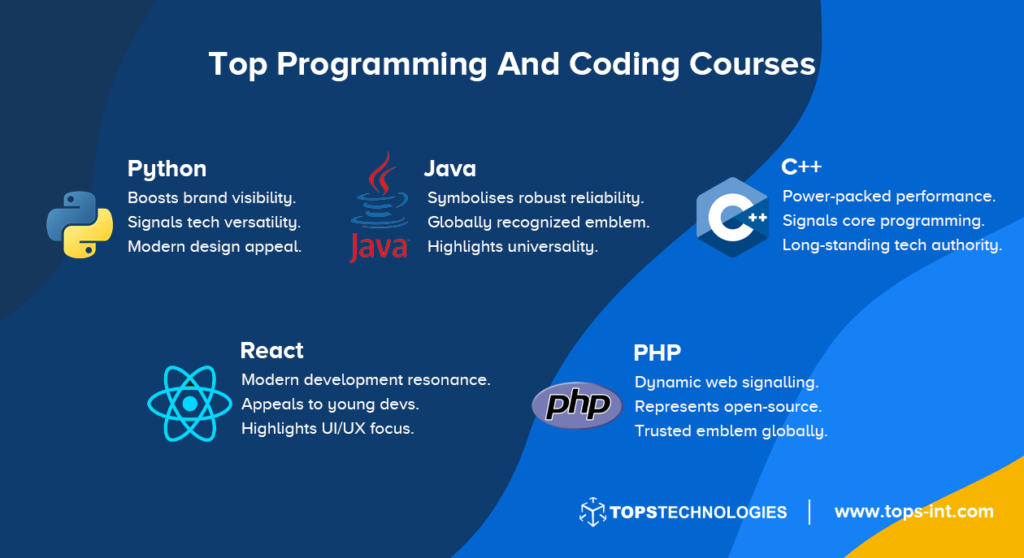
The Ultimate List of Free Programming Courses for Students
If you’re a student interested in programming, there’s never been a better time to start learning. You don’t need expensive bootcamps or degrees to master coding—there are plenty of high-quality, completely free courses designed just for beginners.
Whether you’re aiming to build apps, become a game developer, break into data science, or just explore the tech world, this list has something for you.
Here’s the ultimate roundup of the best free programming courses for students, hand-picked for quality, beginner-friendliness, and practical relevance.
1. CS50: Introduction to Computer Science – Harvard (edX)

Level: Beginner to Intermediate
What you’ll learn: C, Python, algorithms, data structures, web development
This is arguably the most famous beginner programming course in the world. It’s Harvard’s official intro to computer science, and it’s free on edX. Expect interactive lectures, hands-on assignments, and a solid foundation in programming concepts.
2. Programming for Everybody (Python) – University of Michigan (Coursera)
Level: Beginner
What you’ll learn: Python basics, data types, loops, functions
A gentle, beginner-friendly introduction to Python—the most widely used language in modern programming. No prior coding experience required.
3. freeCodeCamp – Full Curriculum
Level: Beginner to Advanced
What you’ll learn: HTML, CSS, JavaScript, Python, Data Structures, APIs, React, and more
freeCodeCamp is a nonprofit that offers an incredible amount of content—completely free. You can earn certifications in web development, JavaScript algorithms, machine learning, and more.
4. Intro to Computer Science – Udacity
Level: Beginner
What you’ll learn: Python, problem-solving, basic programming concepts
Taught by Dave Evans (formerly of Harvard), this course uses Python to teach foundational programming skills. A good option if you’re looking for a structured but flexible starting point.
5. Intro to JavaScript – Codecademy (Free Tier)
Level: Beginner
What you’ll learn: JavaScript basics, functions, control flow, arrays
JavaScript is essential for web development. Codecademy’s interactive platform makes it easy to grasp coding concepts while seeing immediate results in your browser.
6. MIT OpenCourseWare – Introduction to Computer Science and Programming in Python
Level: Beginner to Intermediate
What you’ll learn: Python, algorithms, computational thinking
This is MIT’s entry-level computer science course, offered freely through their OpenCourseWare platform. It’s more academic in tone but great for students who want a deep, structured understanding.
7. CS50’s Web Programming with Python and JavaScript
Level: Intermediate
What you’ll learn: Flask, SQL, APIs, HTML, CSS, JavaScript
A follow-up to the original CS50 course, this dives deeper into web development. Best suited for students who’ve completed an intro course and want to build real web applications.
8. Intro to HTML and CSS – Udacity
Level: Absolute Beginner
What you’ll learn: Building websites, styling with CSS
If you’re just starting and want to create a simple personal website or project, this is a great, quick course to learn the fundamentals of front-end development.
9. Khan Academy – Computer Programming
Level: Middle school, high school, or college beginners
What you’ll learn: JavaScript, HTML/CSS, SQL, interactive animations
Khan Academy offers beginner-friendly programming courses in a fun, visual way. Their interactive lessons are perfect for younger students or anyone who prefers a lighter introduction.
Explore Khan Academy’s programming courses
10. The Odin Project – Full Stack Curriculum
Level: Beginner to Advanced
What you’ll learn: Web development, Git, HTML/CSS, JavaScript, Node.js, React
This free, open-source curriculum is great for students interested in becoming full-stack web developers. It combines theory and hands-on practice with real-world projects.
Bonus Tips for Student Coders:
- Build a portfolio: Even basic projects are valuable for future internships or freelance work.
- Join coding communities: Platforms like Discord, Reddit, and GitHub are great for networking and finding help.
- Practice regularly: Use sites like LeetCode, Codewars, or HackerRank to sharpen your skills.
Final Thoughts
You don’t need a computer science degree or a big budget to learn programming. With these free courses, students can build real skills, explore different areas of tech, and even kick-start a career—all from the comfort of home.
Pick a course that fits your learning style and goals, and just start. You never know where your first line of code might take you.
